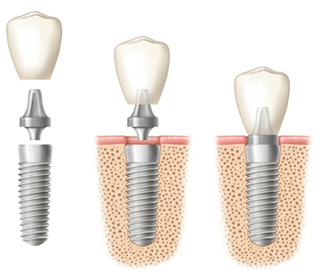Dental implants can be a lifelong solution for replacing missing teeth. But care must be taken to ensure precise placement and adequate bone support. Sometimes sinus perforation occurs during dental implant surgery. What can be done to prevent it? And what should you consider if it’s already happened to you?
1. Is Perforating Sinuses a Big Deal?
-
- Some oral surgeons say perforation of your sinuses during dental implant placement isn’t a big deal. They say that if it happens, the site usually heals well and the patient is fine.
- Other oral surgeons will mention cases where, after perforation, an infection from the sinus cavity spreads around the dental implant. Sometimes, chronic sinus infection results, making it difficult to keep the tissue around an implant healthy.
- The issue of sinus perforation during dental implant placement also raises the question: If the dental implant pokes into the sinuses more than one or two millimeters, is it adequately supported by the jawbone? And will inadequate bone support by the bone contribute to dental implant complications or failure?
2. Dental Implant Surgery – Standard of Care

Dental implants need enough bone to fuse to and remain stable.
High-quality implant surgery requires the surgeon to take x-rays. Most successful oral surgeons use three-dimensional x-rays to ensure there is enough bone density to support dental implants and maintain stability.
3D x-rays will also reveal your facial structure, nerves, and sinus cavities and assist in performing surgery with precision. 3D x-rays help anticipate the need for sinus lift, or sinus floor elevation, and bone grafting before dental implants are placed. A 2010 article in the Journal of Oral implantology reports that in one study of patients who received minimally invasive sinus lift surgery, there was a 97% implant success rate.
3. Have You Experienced Issues?
If you’ve received dental implants and are experiencing problems from sinus perforation, don’t ignore it. Your oral surgeon or implant dentist should communicate to you a clear plan to ensure the problem doesn’t get worse or result in dental implant failure. If you lack bone density to support dental implants, the solution will likely include a sinus lift, or sinus floor elevation, and bone grafting.
4. Consider a Second Opinion
After you speak with your dentist, we suggest that you consider scheduling an appointment for a second opinion. A dentist with advanced training and experience in implantology, an oral surgeon, or a periodontist can review your x-rays, and examine your implant site to determine the issues involved and recommend treatment.
This post is sponsored by Lowell, MA dentist Dr. Michael Szarek.
